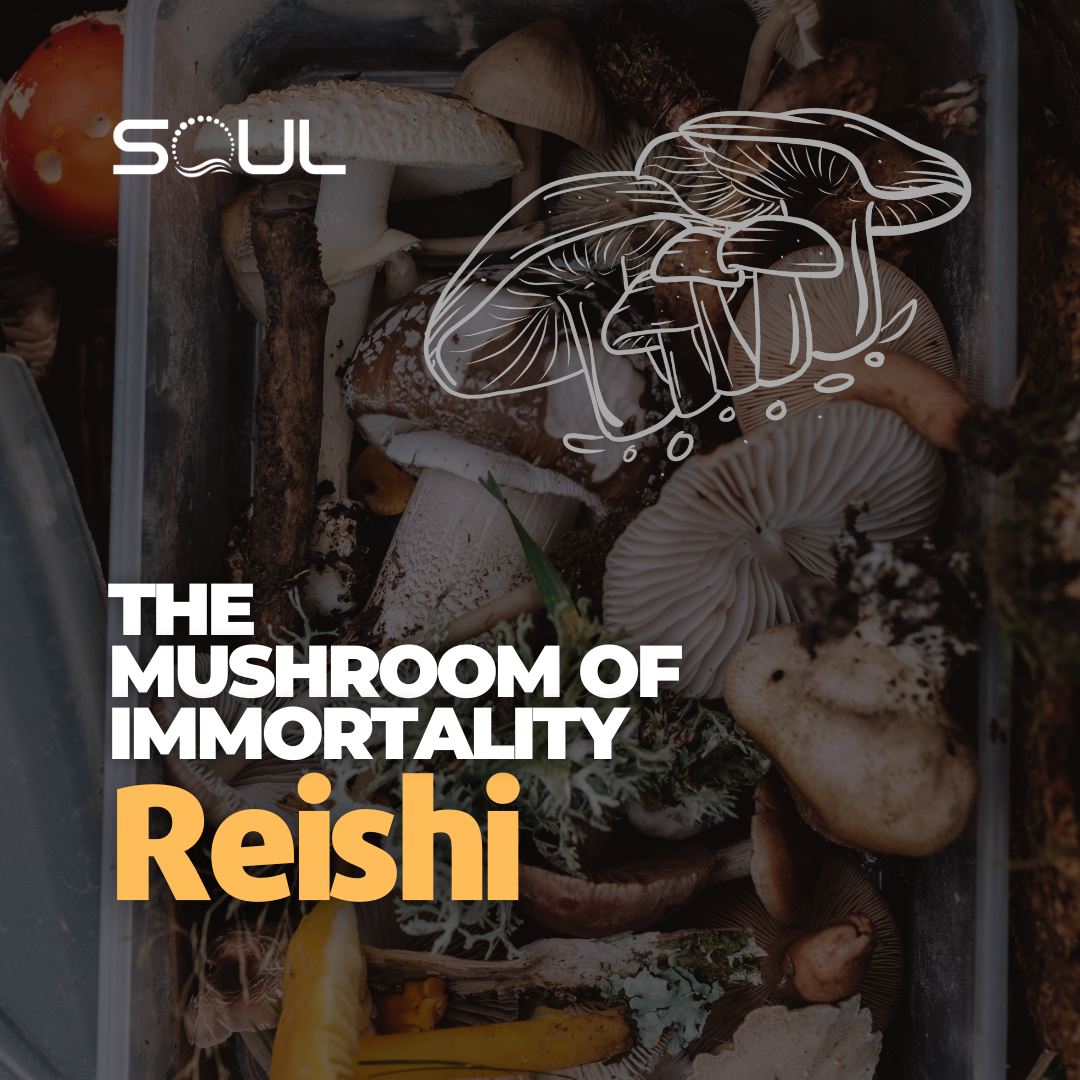
Reishi Mushroom: Ancient Remedy or Modern Marvel? A Deep Dive into the Science and Secrets Behind Ganoderma lucidum
If you've ever taken a stroll down the herbal supplement aisle, you've likely come across the reishi mushroom, also known as Lingzhi or by its scientific name, Ganoderma lucidum. For centuries, this powerful fungus has been revered in traditional Chinese and Japanese medicine as the “mushroom of immortality,” touted for its ability to fortify health, combat illness, and even balance the body’s life force. But what does modern science reveal about these ancient claims? Let’s explore how this medicinal marvel may hold the key to immune strength, cardiovascular health, and perhaps much more.
The Potent Compounds in Reishi: A Molecular Breakdown
At the heart of reishi’s health benefits are its bioactive compounds: polysaccharides, triterpenes, and peptidoglycans. Each compound is a distinct powerhouse, with specific roles that may explain how reishi impacts the body on a mechanistic level.
-
Polysaccharides: Imagine these as complex webs of natural carbohydrates with a dual identity—feeding beneficial bacteria in the gut while rallying immune cells like troops on the battlefield. Polysaccharides stimulate the immune system, acting as “modulators” that can turn the immune response up or down depending on the body’s needs. This modulation could potentially reduce inflammation and bolster the immune response to infections, tumors, and chronic illnesses.
-
Triterpenes: Known for their bitter taste, triterpenes bring the heat in a different way. These compounds are believed to halt tumor growth, reduce inflammation, and even help manage cholesterol and blood pressure. The mechanisms are promising: triterpenes may act as selective assassins, causing cancer cells to undergo apoptosis, or programmed cell death, without harming neighboring healthy cells. In cardiovascular health, these compounds may relax blood vessels and lower lipid levels, addressing two major risk factors for heart disease.
-
Peptidoglycans: With a structure that’s part protein, part carbohydrate, peptidoglycans are like the Swiss Army knives of immune support. These compounds interact with immune receptors, stimulating natural killer (NK) cells and T cells, which are the body’s front-line defenses against infections and abnormal cells. By enhancing the immune system's surveillance, peptidoglycans could play a role in both cancer prevention and infection defense.
Reishi and Immune Function: A Tale of Two Systems
Reishi’s immunomodulatory effects could be its most unique feature. Research suggests it doesn't just boost immunity; it balances it. In cases where the immune system is sluggish, reishi can stimulate cell activity, especially that of NK cells and T cells, which hunt down and eliminate threats. Yet in overactive immune responses—like those seen in autoimmune diseases—reishi can act as a tempering agent, possibly calming the storm to prevent the body from attacking itself.
This dual action suggests that reishi might act as a “wise regulator,” sensing where help is needed and adapting its effects accordingly. But while the mushroom’s balancing act looks promising in preclinical trials, researchers agree that human studies are essential to confirm these effects.
Reishi’s Role in Cardiovascular Health: More Than Just Heartfelt Hype
Cardiovascular diseases are a global health crisis, and reishi may offer a natural line of defense. In animal studies, reishi has shown potential to reduce blood pressure and cholesterol levels. Mechanistically, triterpenes in reishi could be relaxing blood vessels and influencing lipid metabolism. Imagine a natural beta-blocker, easing the strain on the heart and improving circulation. If confirmed in human trials, this would make reishi a valuable tool in reducing the risk factors of heart disease.
However, here lies the catch: while preliminary studies show these benefits in animal models, translating these effects to humans remains a work in progress. Researchers caution that while reishi shows potential, robust human studies are needed to solidify its place in cardiovascular health regimens.
The Big Picture: Is Reishi Right for You?
In an era where synthetic treatments often come with a host of side effects, the allure of reishi’s natural benefits is undeniable. However, while the science behind reishi’s effects on immunity, inflammation, and heart health is promising, more rigorous human trials are needed to confirm these effects and establish safe dosage levels.
These statements have not been evaluated by the Food and Drug Administration. This product is not intended to diagnose, treat, cure or prevent any disease. This article is for informational purposes only and is not a substitute for professional medical advice. Always consult your healthcare provider regarding any health concerns or before starting new supplements.
